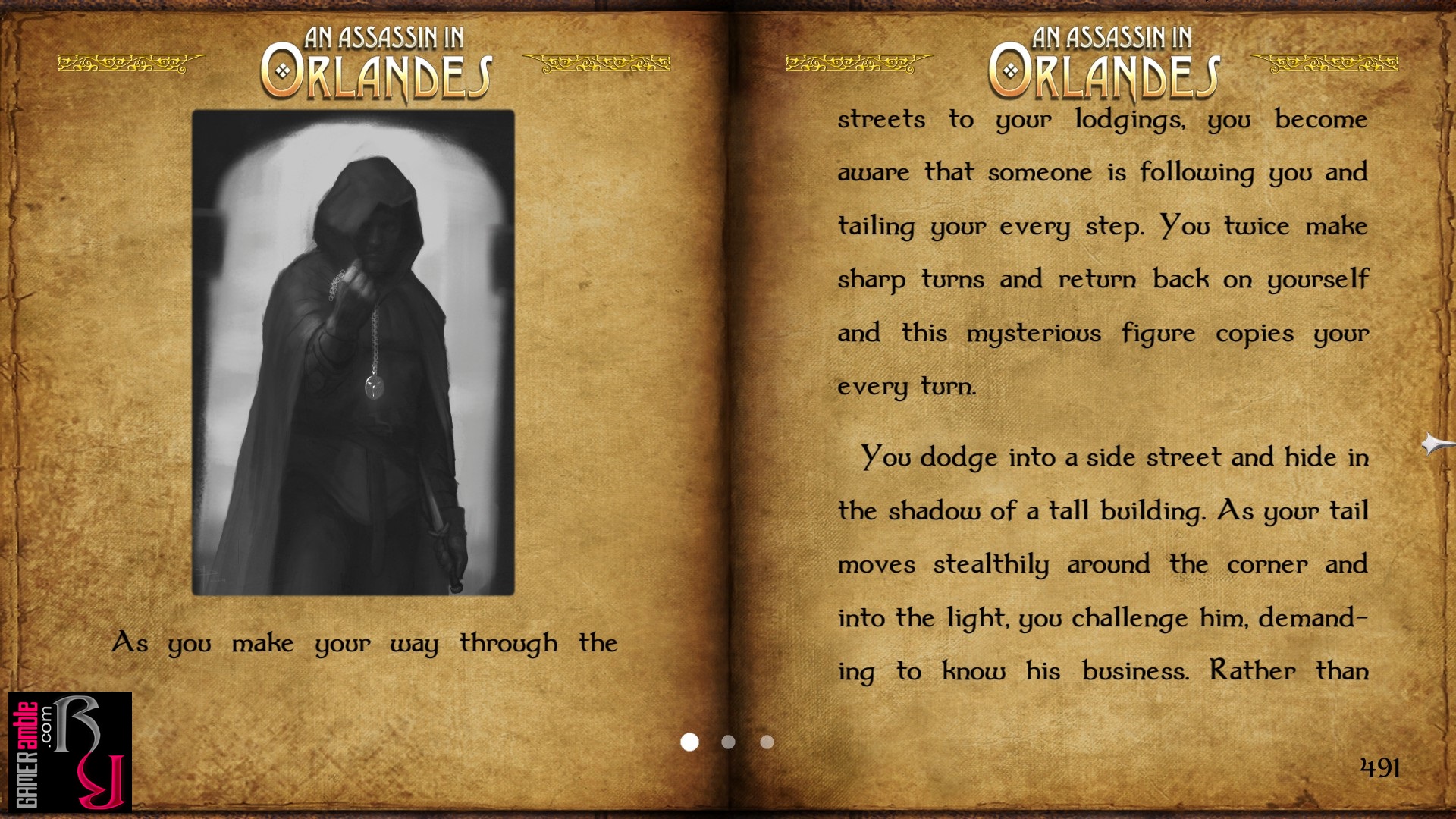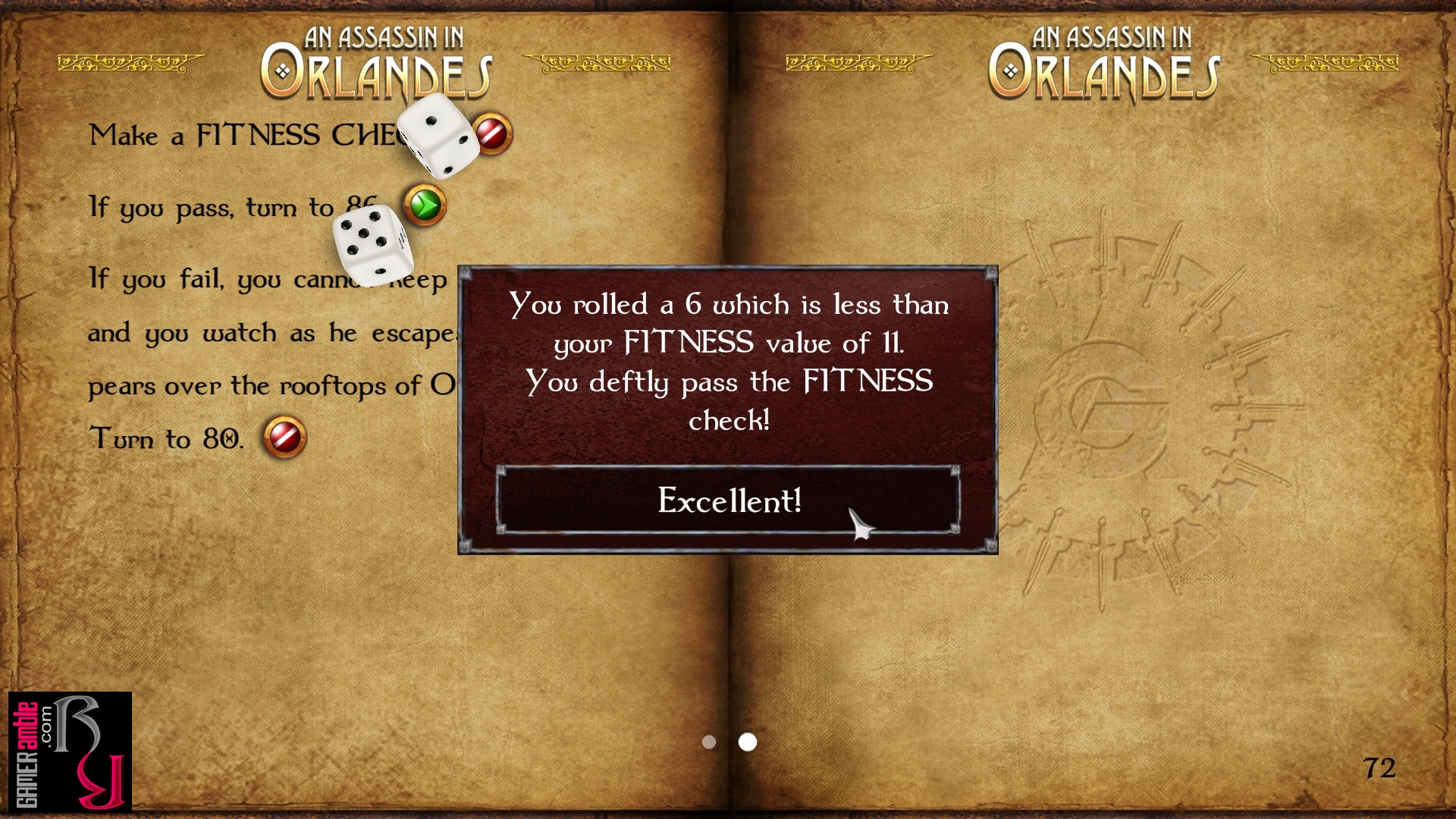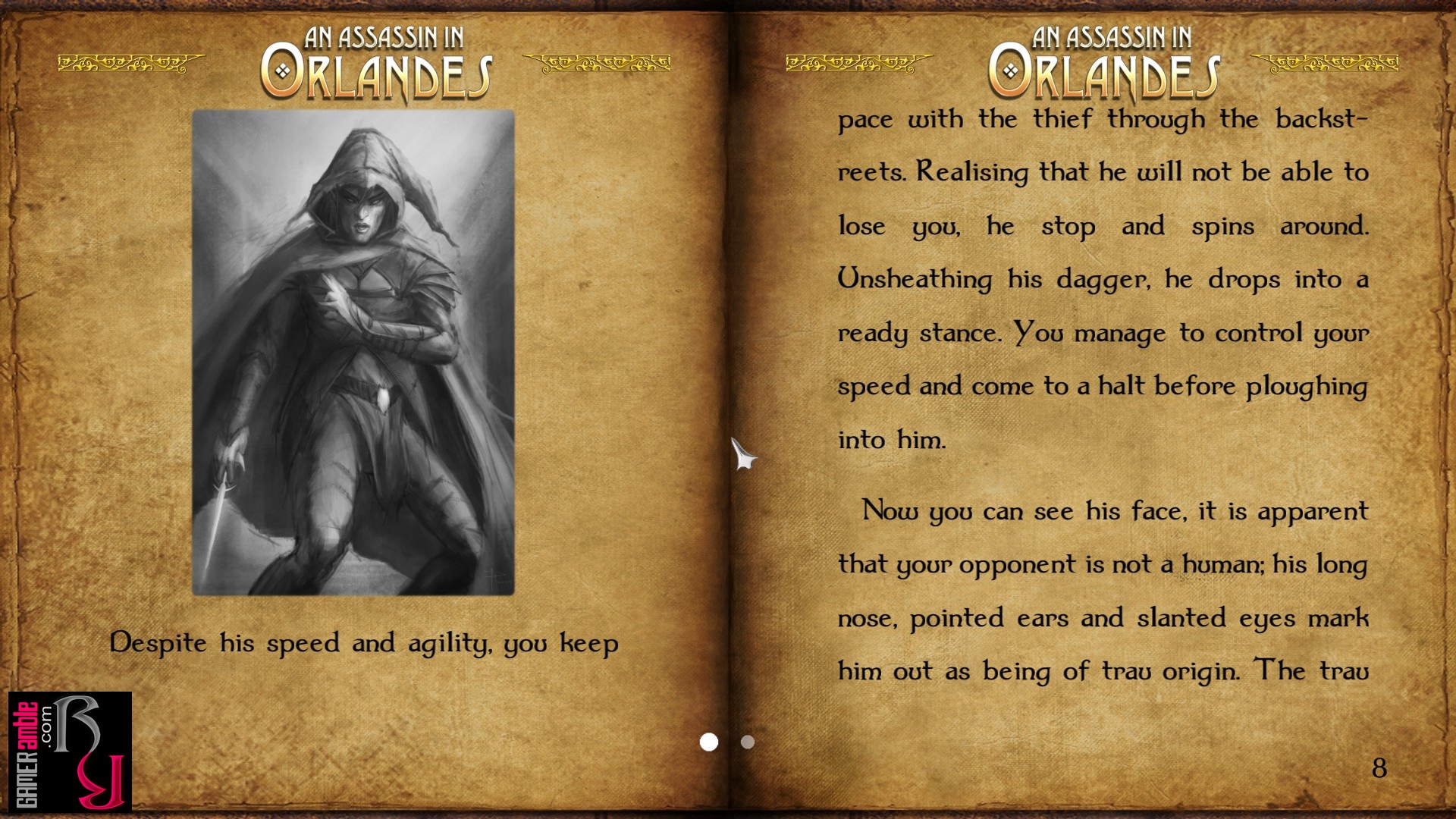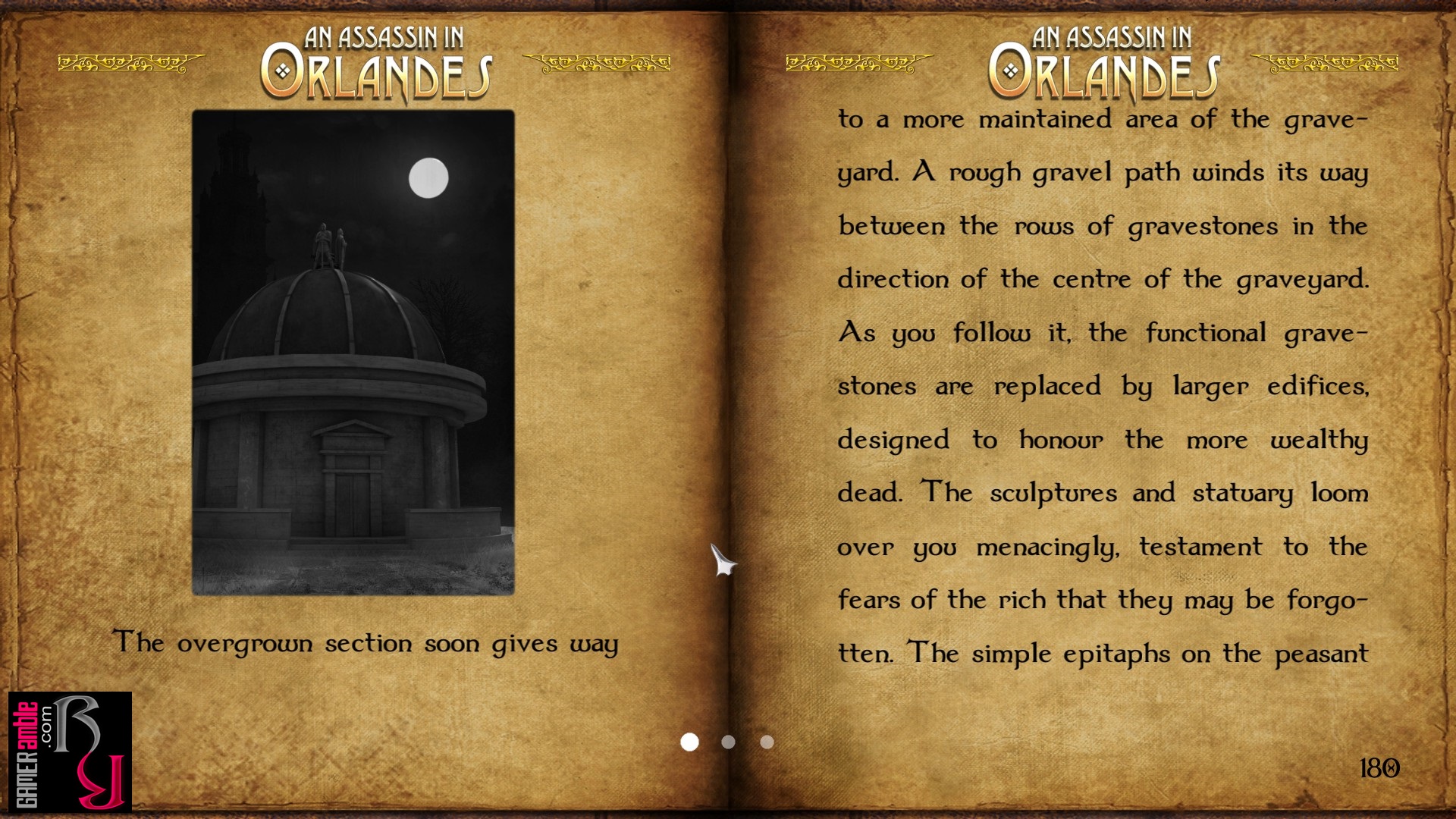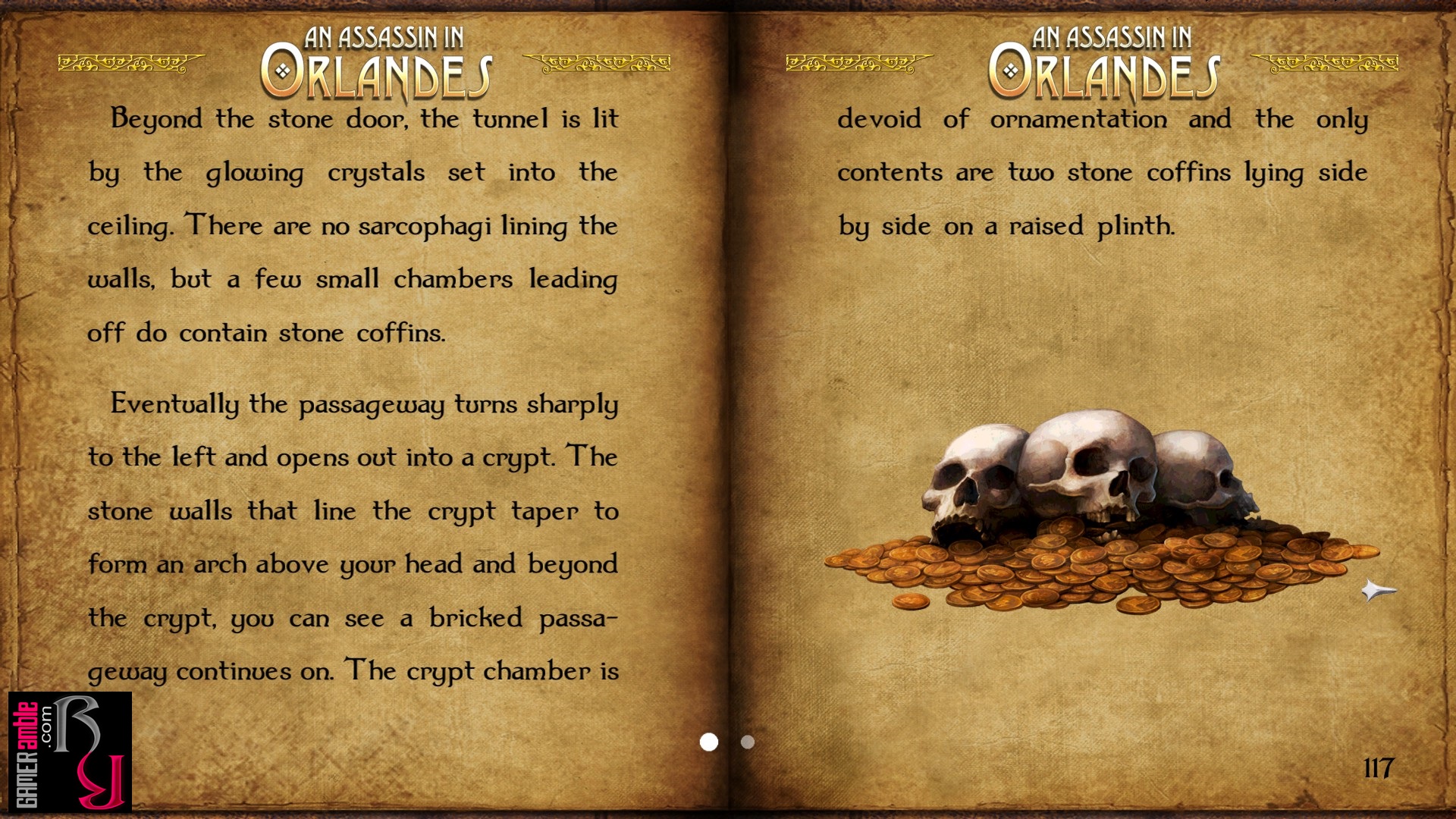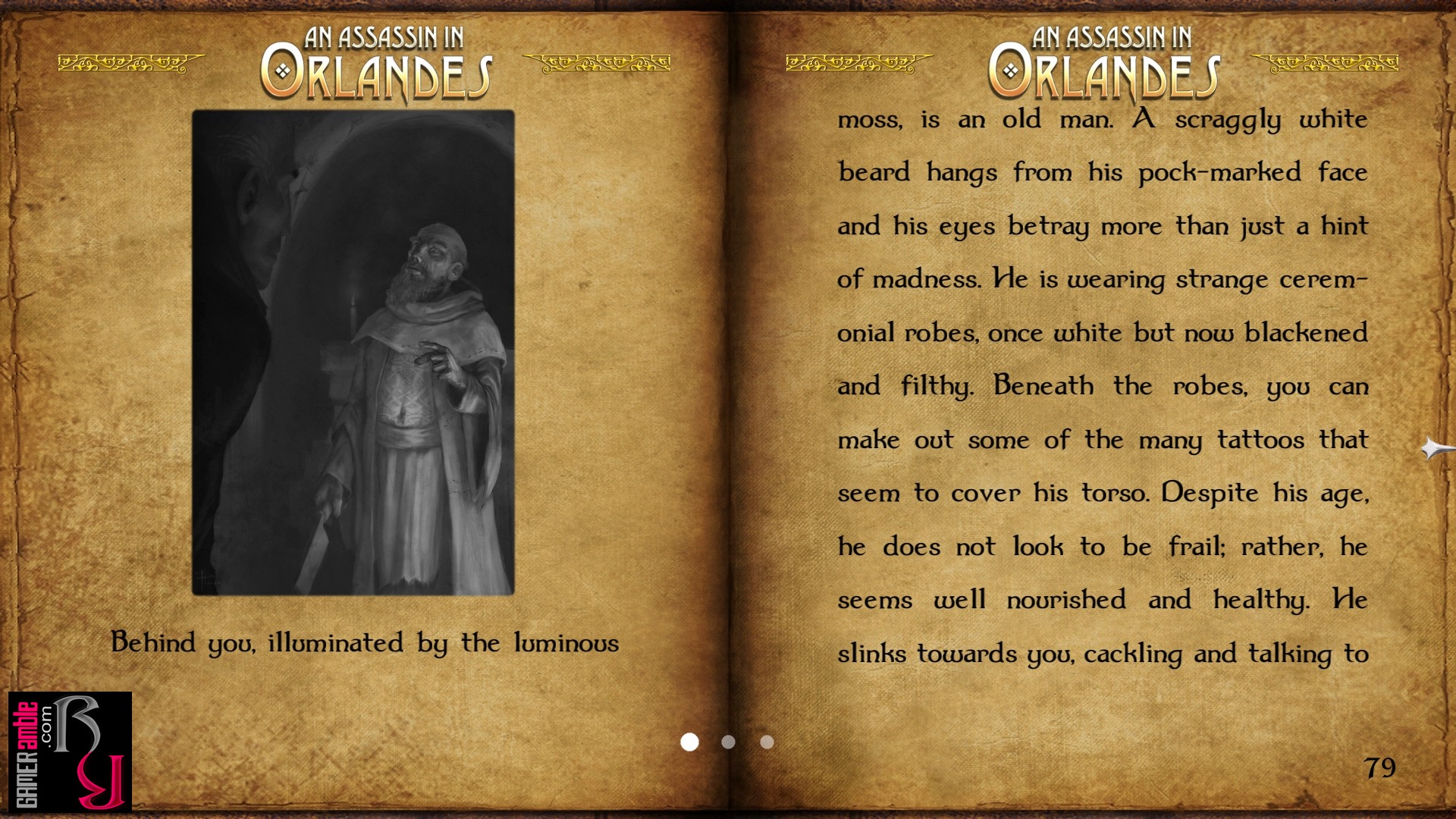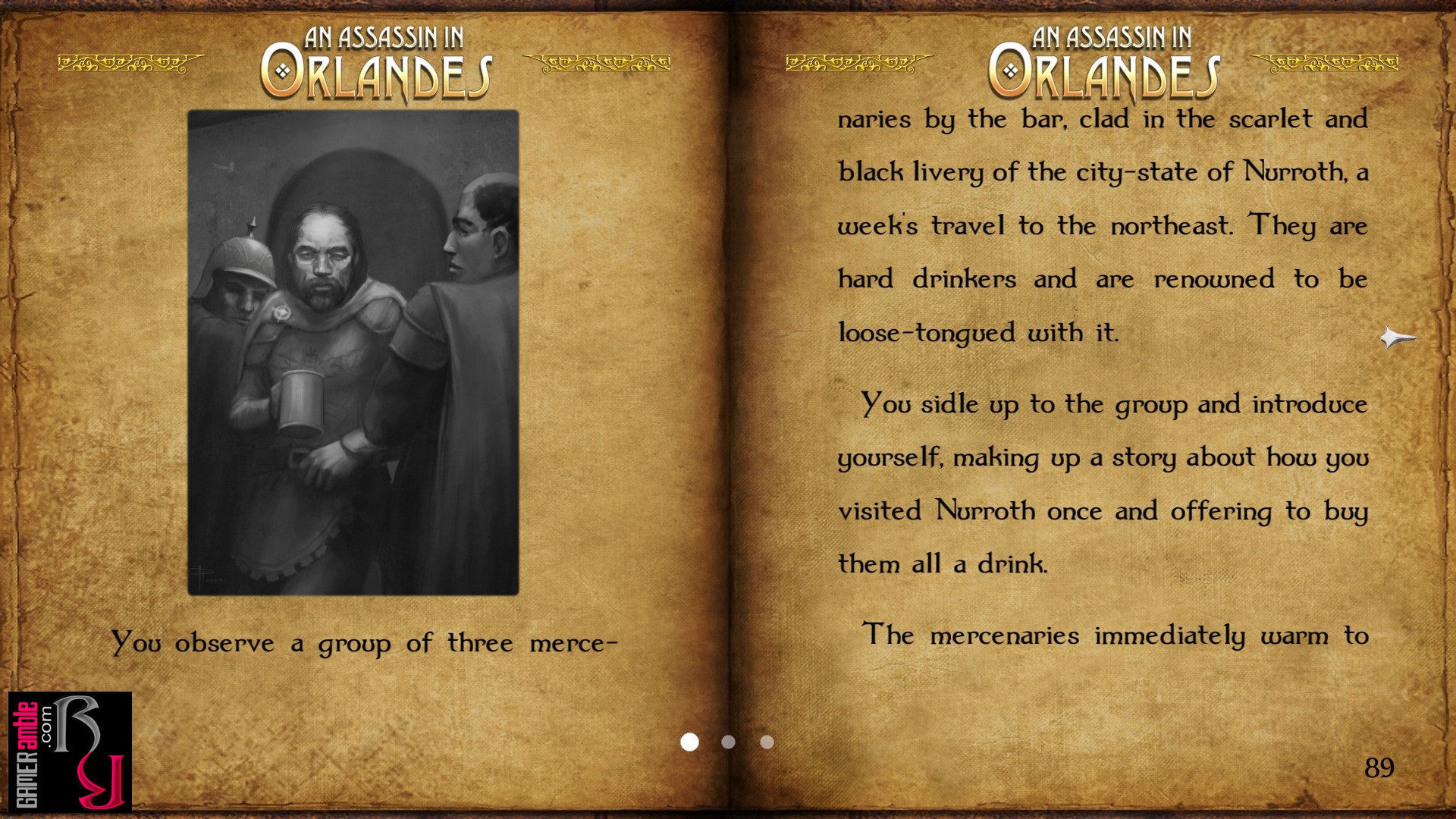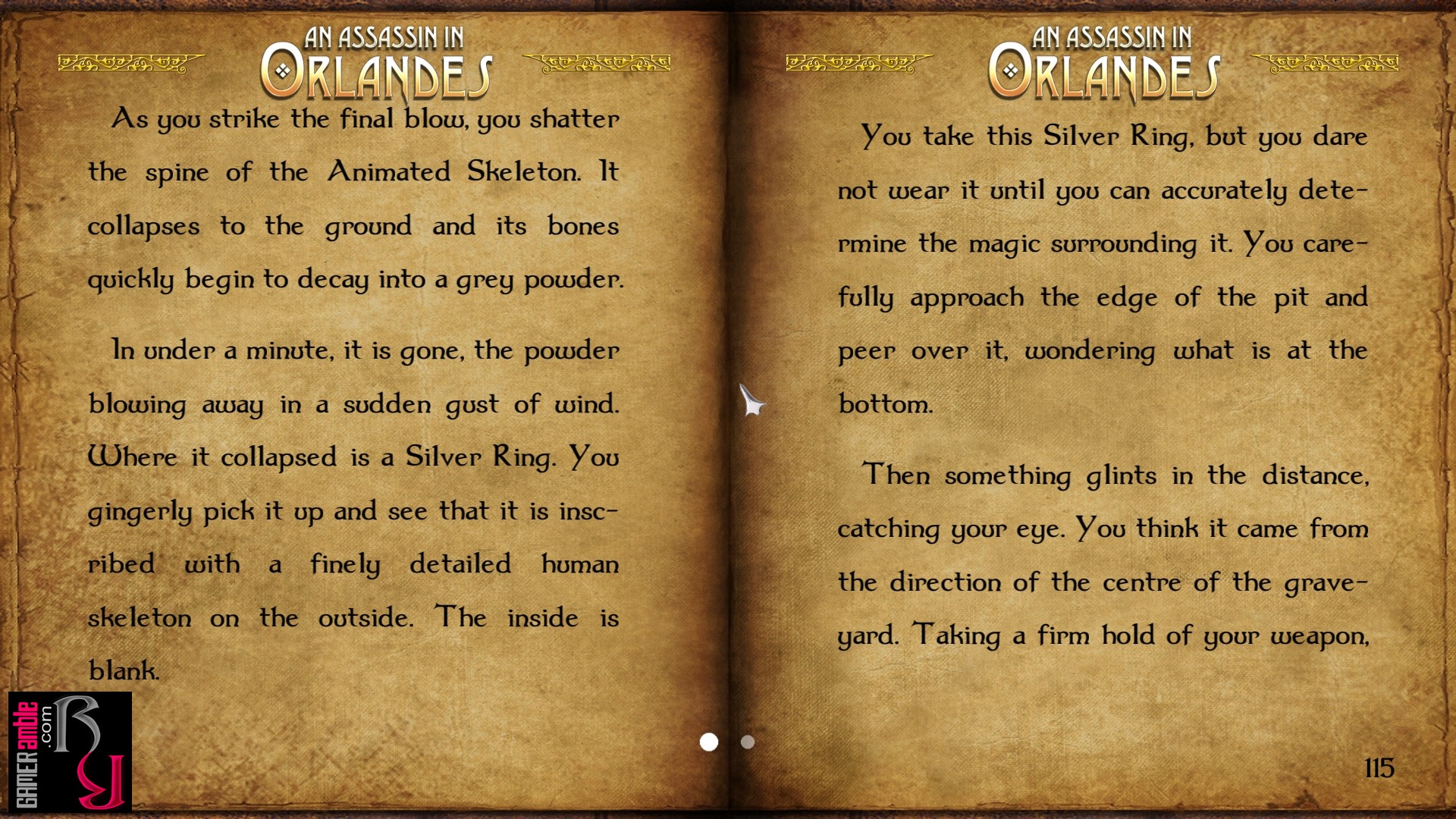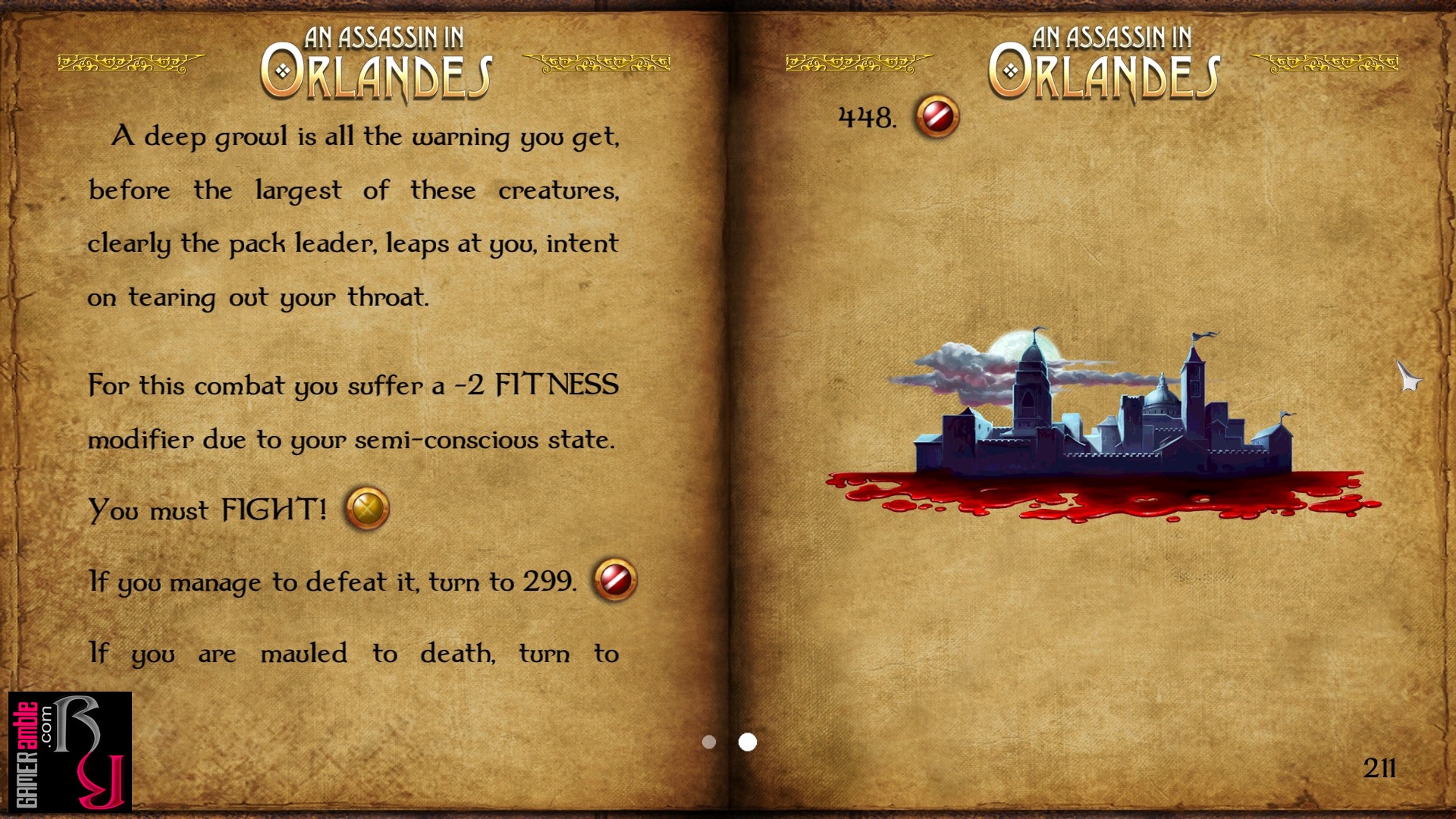An Assassin in Orlandes
Developer: Tin Man Games | Publisher: Tin Man Games | Release Date: 2015 | Genre: RPG / Adventure / Indie | Website: Official Website | Purchase: Steam
An Assassin In Orlandes opens with our hero in a rundown tavern, trying to drink away the heartache of a broken relationship. However, after stumbling out in the winding streets of Orlandes City and witnessing the death of a nobleman, he becomes embroiled in something far more dangerous. It would seem that nobles across the city are being assassinated and the killer might just have their sights on someone near and dear to you. Although this title is another gamebook adventure from Tin Man Games, the story is not a familiar one. This is because unlike classic gamebooks, such as The Forest of Doom and Starship Traveller, An Assassin In Orlandes is a brand new story.
While the story is new, the way in which it unfolds is still the same as the classic gamebooks. You begin by rolling dice to determine the vitality and fitness of your character, two stats that have a huge impact on your survival chances. From there you read the story, which branches in different directions depending on the options you make when presented with multiple choices. These choices can make a big difference as there are multiple paths to the end, but just as many dead ends. It is entirely possible to end up in scenarios where you need a vital item to proceed, but not having it in your possession because your journey took you along a different path. Your adventure is also fraught with danger, so you can expect frequent battles with enemies as well as “vitality test.” The former is resolved with dice rolls for attacking and defending, with the goal being to drop your opponent’s vitality down to zero before they do the same to you. The latter also requires dice rolls, but you only get one chance and failure means either injury or death. While it can be slightly frustrating to have your adventure end due to one unlucky throw of the dice, especially as you are only allowed to save your progress three times in “Classic” mode, it does give the game some replay value.
Of course, if you don’t like repetition and would like to experience the story in the same manner as you could with a physical gamebook, then you can opt for the “Casual” mode. In this mode, you have access to unlimited bookmarks, can restore your vitality at any time, and even skip back to previous pages or unlock all options, even if you are missing important items. In short, it allows you to cheat your way through the story without having to rely on luck or guides. Since the story is quite short, we recommend not playing on Casual mode for your first few attempts, but it is a great way to explore different story branches after you have finished Classic mode.
Seeing as An Assassin In Orlandes was originally a mobile title, it isn’t exactly impressive in terms of visuals and audio when played on PC. The interface is designed to look like the pages of real book, so don’t expect any animations beyond the 3D dice. You will mostly be seeing text, but there are some drawings scattered throughout the pages. These are black and white only, but very true to the style of the original gamebooks. For extra readability you can change the font type and size of the text while clicking the edges of the screen turns the “pages.” The music can only be described as unobtrusive and there really isn’t much in the way of sound effects. Since this is a brand new gamebook adventure we really enjoyed the “Orlandes Uncovered” section that is tucked away behind the “Extras” menu. Here you will find detailed descriptions of the history and geography of the gameworld as well as more information about the towns and cities, races, creatures, monsters, wildlife and even spirits and gods. Sadly, there are no illustrations for any of these, which feels like a bit of a missed opportunity, especially for the creatures. You can also only read entries about things that you have encountered in the game, which gives you some incentive to try out different choices.
Overall we really enjoyed the story, which is action packed and actually features some nice twists. Since it is a very luck based game, it might frustrate some players, but this is something that is somewhat unavoidable in the gamebook genre. Besides, the Casual mode provides everyone to simply experience the story without having to rely on luck. If you are a fan of the genre then this game provides the perfect opportunity to sink your teeth into a brand new story. It is not perfect, but it is fun, affordable and also serves as a nice introduction to the genre if you are not familiar with gamebooks.
System Requirements
- Minimum PC System Requirements
- Recommended PC System Requirements
- Minimum Mac OS X System Requirements
- Recommended Mac OS X System Requirements
- Minimum SteamOS + Linux System Requirements
- Recommended SteamOS + Linux System Requirements
-
- OS: Windows XP SP3
- Processor: 2 GHz dual core
- Memory: 2 GB RAM
- Graphics: Hardware Accelerated Graphics with dedicated memory
- Storage: 350 MB available space
-
- OS: Windows 7/8
- Memory: 4 GB RAM
- Graphics: Hardware Accelerated Graphics with 1GB memory
- Storage: 350 MB available space
-
- OS: Mac OS 10.7.5+
- Processor: 2 GHz dual core
- Memory: 2 GB RAM
- Graphics: Hardware Accelerated Graphics with dedicated memory
- Storage: 350 MB available space
-
- OS: Mac OS 10.8
- Memory: 4 GB RAM
- Graphics: Hardware Accelerated Graphics with 1GB memory
- Storage: 350 MB available space
-
- Processor: 2 GHz dual core
- Memory: 2 GB RAM
- Graphics: Hardware Accelerated Graphics with dedicated memory
- Storage: 350 MB available space
-
- Memory: 4 GB RAM
- Graphics: Hardware Accelerated Graphics with 1GB memory
- Storage: 350 MB available space


